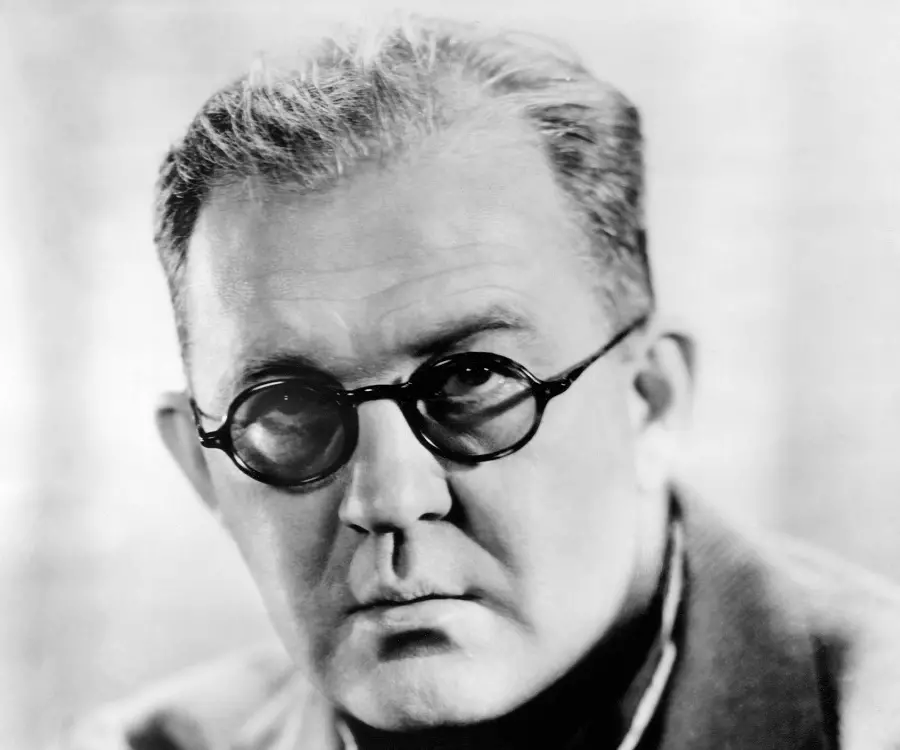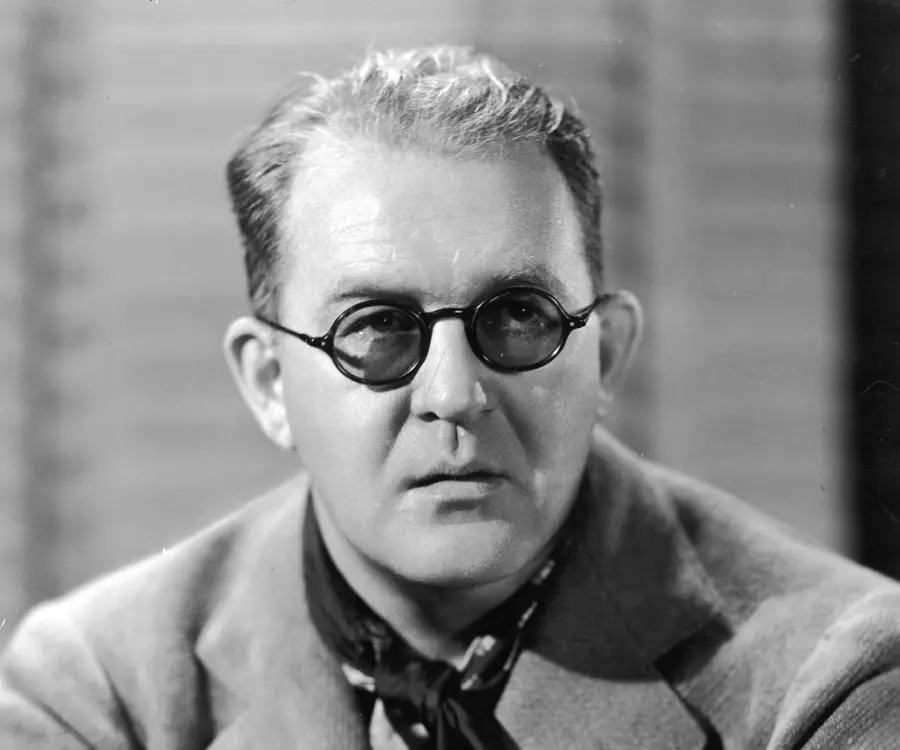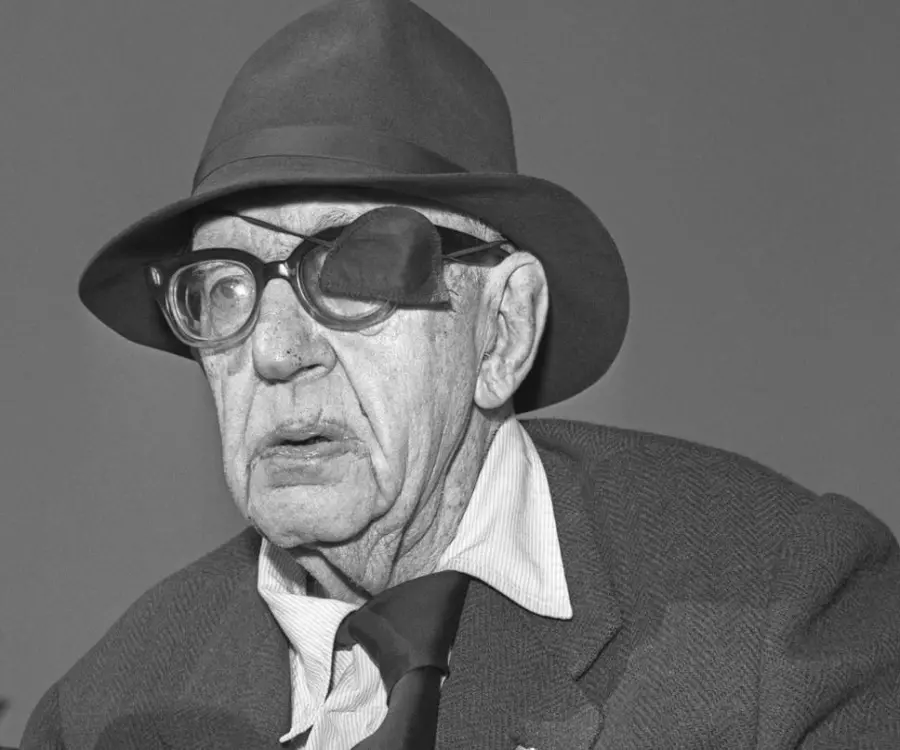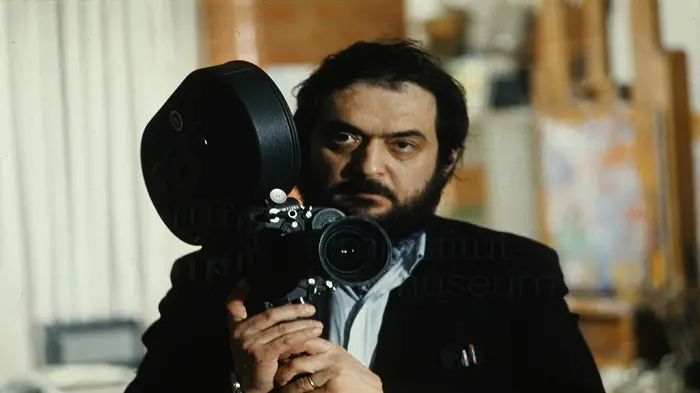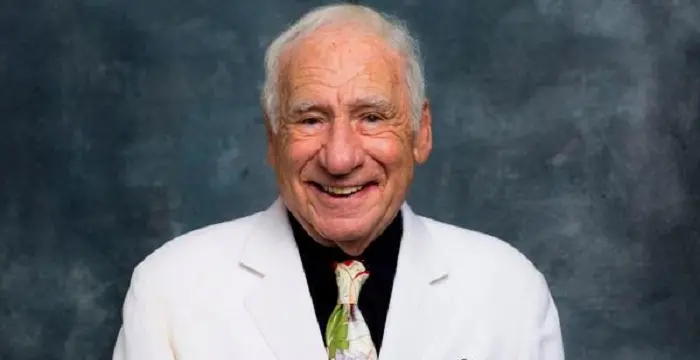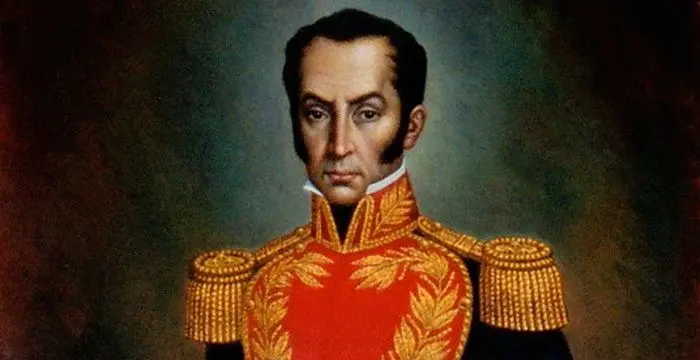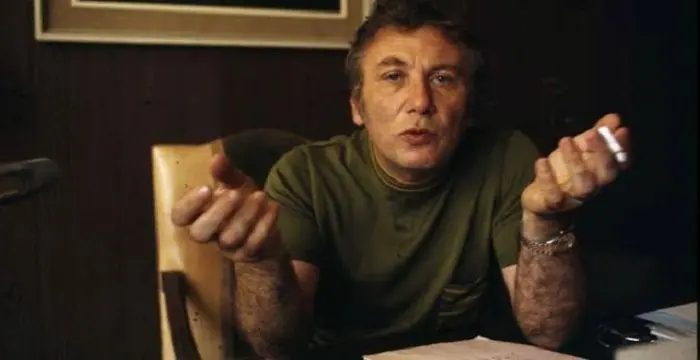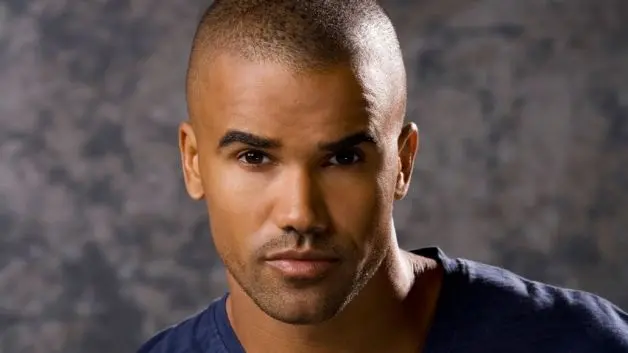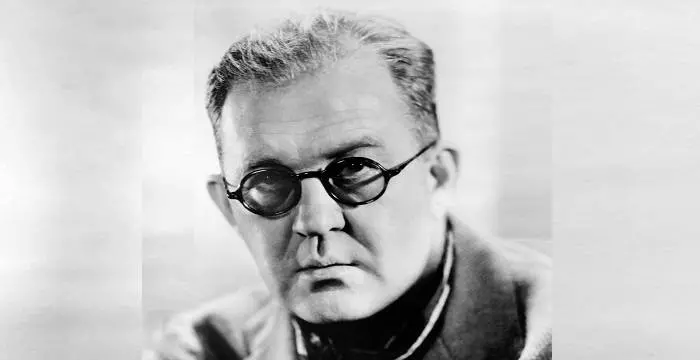
John Ford - Producer, Life Achievements and Family
John Ford's Personal Details
John Ford was an award-winning Irish-American filmmaker
| Information | Detail |
|---|---|
| Birthday | February 1, 1894 |
| Died on | August 31, 1973 |
| Nationality | American |
| Famous | Republicans, Film & Theater Personalities, Directors, T V & Movie Producers, Film Director, Producer |
| Ideologies | Republicans |
| City/State | Maine |
| Spouses | Mary McBryde Smith |
| Siblings | Barbara Feeney, Bridget Feeney, Daniel Joseph Feeney, Delia Feeney, Francis Ford, Hannah Feeney, Josephine Feeney, Mamie Feeney, Patrick Feeney |
| Known as | John Martin |
| Childrens | Barbara Ford, Patrick Ford |
| Universities |
|
| Birth Place | Cape Elizabeth |
| Religion | Roman Catholic |
| Height | 183 |
| Gender | Male |
| Father | John Augustine Feeney |
| Mother | Barbara Curran |
| Sun Sign | Aquarius |
| Born in | Cape Elizabeth |
| Famous as | Film Director & Producer |
| Died at Age | 79 |
// Famous Producer
Michael Schur
Michael Schur is an American television actor, producer, and writer. Check out this biography to know about his birthday, childhood, family life, achievements and fun facts about him.
Ashton Kutcher
Ashton Kutcher is an American actor, model and a producer. This biography profiles his childhood, life, acting career, achievements and timeline.
Chad McQueen
Chad McQueen is an American actor, film producer, race car driver and martial artist Check out this biography to know about his childhood, family life, achievements and fun facts about him.
John Ford's photo
Who is John Ford?
Best-known for directing Westerns and silent movies, John Ford is one of the most prominent filmmakers of all time. Though many of his silent films are now lost in Hollywood archives, his legacy lives on as ‘The Great American Director’. Through his career covering nearly 50 years, he directed over 140 films, many of which were nominated for top honors with some even winning the Academy Awards. The 40s and 50s proved to be a crucial period in his career, as some of his best works including ‘Grapes of Wrath’, ‘Fort Apache’, ‘She Wore a Yellow Ribbon’ and ‘The Quiet Man’ were released. From westerns to classics and romance, he has experimented with a wide range of genres and unlike many other directors of his time, he was successful in most. His trademark style was directing long shots with his protagonists set in rocky, natural topographies. Apart from directing films, he also served in the United States Navy and was also linked with the Republican Party - although essentially apolitical, he was an ardent supporter of the Irish Republican Army (IRA) and routed his money to the IRA to back them.
// Famous Film Director
Stanley Kubrick
Stanley Kubrick was a screenwriter and film director known for his movies like ‘The Clockwork Orange’ and ‘The Shining’. This biography of Stanley Kubrick provides detailed information about his childhood, life, achievements, works & timeline.
Baz Luhrmann
Baz Luhrmann is an Australian writer, filmmaker, and producer. Check out this biography to know about his birthday, childhood, family life, achievements and fun facts about him.
Mel Brooks
Known as the king of farces and comic parodies, Mel Brooks is a famous American film director, comedian, actor, producer and composer. This biography provides detailed information on his childhood, life, career, works, achievements & timeline.
Childhood & Early Life
John Ford was born as John Martin "Jack" Feeney to John Augustine Feeney and Barbara Curran in Cape Elizabeth, Maine, U.S.
He studied at Portland High School in Portland, Maine, where he earned the nickname ‘Bull’. He moved to California in 1914 and began working in film production and acting, inspired by his elder brother, Francis, who was involved in showbiz.
He assumed the name, ‘Jack Ford’ which was his stage name and appeared in a number of theatre productions/plays including the 1915 classic, ‘The Birth of a Nation’.
Career
He initially started working for films as a handyman, assistant and occasional side actor and earned his first role in the movie, ‘The Mysterious Rose’. He learned the ways of filmmaking quickly and earned his first break as a director at a time when his brother’s career was waning.
His directorial debut, as mentioned by a number of sources, was for the film, ‘The Tornado’, which released in March 1917. ‘The Trail of Hate’, ‘The Scrapper’, ‘The Soul Herder’ and ‘Cheyenne’s Pal’ soon followed. The same year, his first feature-length production, ‘Straight Shooting’ was released. ‘Bucking Broadway’ was the last film he made in the year 1917.
After directing thirty six films in three years, he moved to the William Fox studio, where he directed the first film for them, ‘Just Pals’ in 1920. Three years later, he received his first directing credit for another silent, ‘Cameo Kirby’, which depicted his name as ‘John Ford’ rather than ‘Jack Ford’.
He tasted superlative success with the film, ‘The Iron Horse’, which released in 1924. It was one of his first films in the ‘Western’ category. Thereafter, Ford began to experiment with more Westerns during this period including, ‘3 Bad Men’.
In 1928, he directed ‘Mother Machree’ and the drama-film, ‘Napoleon’s Barber’. His last silent movie, ‘Hangman’s House’ was also directed this year, along with another movie, ‘Riley the Cop’.
He directed ‘Strong By’, ‘The Black Watch’ and ‘Salute’ in 1929 and all of three earned him appreciation and praise. He continued to remain consistent with his output and the following year, he directed three more films including, ‘Men without Women’, ‘Born Reckless’ and ‘Up the River’.
The 30s was a crucial period for Ford’s career. He received his first Academy Award nomination in 1931 for movies like, ‘Seas Beneath’, ‘The Brat’ and ‘Arrowsmith’.
In 1933, he began working with Will Rogers for ‘Pilgrimage’ and ‘Doctor Bull’ and the next year he also directed ‘The Lost Patrol’ and ‘Judge Priest’, the latter in association with Fox Film.
In 1935, he directed a film in the comedy genre titled, ‘The Whole Town’s Talking’, which earned him widespread critical acclaim. The same year, he directed one of his last films with Will Rogers, ‘Steamboat Round the Bend’.
He also directed ‘The Informer’ in 1935, which is rated as one of his best films till date. The film earned a great deal of praise and was nominated for a number of Academy Awards. The next year, he directed ‘The Prisoner of Shark Island’.
Year 1937 was considered as one of the highlight years in Ford’s career. Movies like ‘The Hurricane’ and ‘Wee Willie Winkie’ created waves in Hollywood for its unique direction and videography.
In 1939, he directed ‘Stagecoach’, one of his most well-regarded ‘Western’ classics. He even directed the frontier drama, ‘Drums along the Mohawk’, which also became a mainstream hit.
He directed the film adaptation of John Steinbeck’s novel, ‘The Grapes of Wrath’, in 1940. This was followed by the direction of two lesser known films including, ‘The Long Voyage Home’ and ‘Tobacco Road’, the latter released the next year.
Just before the World War II, he directed his last feature, ‘How Green Was My Valley’, which became one of the biggest films at the time. Through the war years, he directed ‘The Battle of Midway’, ‘December 7th’ and ‘They Were Expendable’.
Post-World War II, he was still an officer in the United States Navy Reserve and from 1946 to 1956 he directed sixteen features and a number of documentaries, such as ‘The Fugitive’, ‘Fort Apache’, the ‘Cavalry’ trilogy, ‘Willie Comes Marching Home’ and ‘The Sun Shines Bright’.
He directed ‘The Searchers’, his only Western film under the Warner Bros. banner, which came to be known as one of the greatest Westerns ever made. Other films through the 50s include, ‘The Last Hurrah’ and ‘The Rising of the Moon’.
In his final years, his ill health, mainly due to excessive drinking and smoking, slowed down his career. His last few films before his death include ‘Sergeant Rutledge’, ‘Two Rode Together’, ‘The Man Who Shot Liberty Valance’, ‘Donovan’s Reef’ and his last completed feature, ‘7 Women’.
Major Works
In 1935, he directed ‘The Informer’, which went on to earn $950,000 at the box-office. The movie was a critical and commercial hit and was nominates for a total of six Academy Awards, out of which it won four. ‘The Informer’ became such a big hit that the movie was also adapted for the radio.
‘Drums Along the Mohawk’, released in 1939 and was nominated for two Academy Awards and was a major box-office success. In the first year of its release, it collected a whopping, US$ 1 million.
Released in 1939, ‘Stagecoach’ is largely considered Ford’s magnum opus. This was one of the first sound-Western films of his time and the movie became such a grand success that it earned $1,103,757 at the box-office. It won a total of three important awards and earned 5 Academy Award nominations.
Awards & Achievements
Ford won a total of 6 Academy Awards, out of which four of them were for the category of ‘Best Director’ for the years 1935, 1940, 1941 and 1952. Till date, he is the only American director to win the most Best Director Oscars.
In 1973, he was honored for the first time ever with the ‘American Film Institute Life Achievement Award’.
He was also presented the ‘Presidential Medal of Freedom’ by Richard Nixon, in 1973.
Personal Life & Legacy
He wedded Mary McBryde Smith on July 3, 1920 and had two children. Although the marriage lasted through his death, it was dotted with Ford’s countless extra-marital affairs.
Towards the end of his life, he suffered from a number of problems including cancer and a broken hip which confined him to a wheelchair. His health deteriorated rapidly even more due to his early alcohol and smoking habits.
He passed away at Palm Desert and he was interred at the Holy Cross Cemetery in California.
Today, he is considered one of the most influential filmmakers of all time, ranking fifth. He went on to inspire a number of personalities including Frank Capra, Alfred Hitchcock, Sergio Leone, Satyajit Ray, Steven Spielberg and Wim Wenders.
In 2011, the Irish Film & Television Academy instituted ‘John Ford Ireland’, which celebrates the works of this illustrious director. The next year, the first ‘John Ford Symposium’ was held to commemorate his life and works.
‘The John Ford Award’ was created to honor pioneers in American filmmaking.
Trivia
This celebrated American filmmaker was the first director to win successive ‘Best Director’ Oscars in 1941 and 1942.
// Famous Republicans
Simon Bolivar
Simón Bolívar was a Venezuelan military leader who was instrumental in independence of several Latin American countries from the Spanish rule. This biography profiles his childhood, life, achievements and timeline.
Nizar Qabbani
Nizar Qabbani was a poet, and is one among the most honoured men in the Arab Literary world. This biography provides detailed information about his childhood, career, profile and timeline.
William Ruto
William Ruto is a politician who hails from Kenya and is the first Deputy President of the Republic of Kenya. This biography provides detailed information about his childhood, Profile, career and timeline
John Ford's awards
| Year | Name | Award |
|---|---|---|
Academy Awards(Oscars) | ||
| 1953 | Best Director | The Quiet Man (1952) |
| 1942 | Best Director | How Green Was My Valley (1941) |
| 1941 | Best Director | The Grapes of Wrath (1940) |
| 1936 | Best Director | The Informer (1935) |
John Ford biography timelines
- // 1st Feb 1894John Ford was born as John Martin "Jack" Feeney to John Augustine Feeney and Barbara Curran in Cape Elizabeth, Maine, U.S.
- // 1914He studied at Portland High School in Portland, Maine, where he earned the nickname ‘Bull’. He moved to California in 1914 and began working in film production and acting, inspired by his elder brother, Francis, who was involved in showbiz.
- // 1915He assumed the name, ‘Jack Ford’ which was his stage name and appeared in a number of theatre productions/plays including the 1915 classic, ‘The Birth of a Nation’.
- // 1917His directorial debut, as mentioned by a number of sources, was for the film, ‘The Tornado’, which released in March 1917. ‘The Trail of Hate’, ‘The Scrapper’, ‘The Soul Herder’ and ‘Cheyenne’s Pal’ soon followed. The same year, his first feature-length production, ‘Straight Shooting’ was released. ‘Bucking Broadway’ was the last film he made in the year 1917.
- // 1920After directing thirty six films in three years, he moved to the William Fox studio, where he directed the first film for them, ‘Just Pals’ in 1920. Three years later, he received his first directing credit for another silent, ‘Cameo Kirby’, which depicted his name as ‘John Ford’ rather than ‘Jack Ford’.
- // 3rd Jul 1920He wedded Mary McBryde Smith on July 3, 1920 and had two children. Although the marriage lasted through his death, it was dotted with Ford’s countless extra-marital affairs.
- // 1924He tasted superlative success with the film, ‘The Iron Horse’, which released in 1924. It was one of his first films in the ‘Western’ category. Thereafter, Ford began to experiment with more Westerns during this period including, ‘3 Bad Men’.
- // 1928In 1928, he directed ‘Mother Machree’ and the drama-film, ‘Napoleon’s Barber’. His last silent movie, ‘Hangman’s House’ was also directed this year, along with another movie, ‘Riley the Cop’.
- // 1929He directed ‘Strong By’, ‘The Black Watch’ and ‘Salute’ in 1929 and all of three earned him appreciation and praise. He continued to remain consistent with his output and the following year, he directed three more films including, ‘Men without Women’, ‘Born Reckless’ and ‘Up the River’.
- // 1931The 30s was a crucial period for Ford’s career. He received his first Academy Award nomination in 1931 for movies like, ‘Seas Beneath’, ‘The Brat’ and ‘Arrowsmith’.
- // 1933In 1933, he began working with Will Rogers for ‘Pilgrimage’ and ‘Doctor Bull’ and the next year he also directed ‘The Lost Patrol’ and ‘Judge Priest’, the latter in association with Fox Film.
- // 1935In 1935, he directed a film in the comedy genre titled, ‘The Whole Town’s Talking’, which earned him widespread critical acclaim. The same year, he directed one of his last films with Will Rogers, ‘Steamboat Round the Bend’.
- // 1935He also directed ‘The Informer’ in 1935, which is rated as one of his best films till date. The film earned a great deal of praise and was nominated for a number of Academy Awards. The next year, he directed ‘The Prisoner of Shark Island’.
- // 1935In 1935, he directed ‘The Informer’, which went on to earn $950,000 at the box-office. The movie was a critical and commercial hit and was nominates for a total of six Academy Awards, out of which it won four. ‘The Informer’ became such a big hit that the movie was also adapted for the radio.
- // 1935 To 1952Ford won a total of 6 Academy Awards, out of which four of them were for the category of ‘Best Director’ for the years 1935, 1940, 1941 and 1952. Till date, he is the only American director to win the most Best Director Oscars.
- // 1937Year 1937 was considered as one of the highlight years in Ford’s career. Movies like ‘The Hurricane’ and ‘Wee Willie Winkie’ created waves in Hollywood for its unique direction and videography.
- // 1939In 1939, he directed ‘Stagecoach’, one of his most well-regarded ‘Western’ classics. He even directed the frontier drama, ‘Drums along the Mohawk’, which also became a mainstream hit.
- // 1939‘Drums Along the Mohawk’, released in 1939 and was nominated for two Academy Awards and was a major box-office success. In the first year of its release, it collected a whopping, US$ 1 million.
- // 1939Released in 1939, ‘Stagecoach’ is largely considered Ford’s magnum opus. This was one of the first sound-Western films of his time and the movie became such a grand success that it earned $1,103,757 at the box-office. It won a total of three important awards and earned 5 Academy Award nominations.
- // 1940He directed the film adaptation of John Steinbeck’s novel, ‘The Grapes of Wrath’, in 1940. This was followed by the direction of two lesser known films including, ‘The Long Voyage Home’ and ‘Tobacco Road’, the latter released the next year.
- // 1941 To 1942This celebrated American filmmaker was the first director to win successive ‘Best Director’ Oscars in 1941 and 1942.
- // 1946 To 1956Post-World War II, he was still an officer in the United States Navy Reserve and from 1946 to 1956 he directed sixteen features and a number of documentaries, such as ‘The Fugitive’, ‘Fort Apache’, the ‘Cavalry’ trilogy, ‘Willie Comes Marching Home’ and ‘The Sun Shines Bright’.
- // 1973In 1973, he was honored for the first time ever with the ‘American Film Institute Life Achievement Award’.
- // 1973He was also presented the ‘Presidential Medal of Freedom’ by Richard Nixon, in 1973.
- // 31st Aug 1973He passed away at Palm Desert and he was interred at the Holy Cross Cemetery in California.
- // 2011In 2011, the Irish Film & Television Academy instituted ‘John Ford Ireland’, which celebrates the works of this illustrious director. The next year, the first ‘John Ford Symposium’ was held to commemorate his life and works.
// Famous Film & Theater Personalities
Jacob Elordi
Jacob Elordi is an Australian actor. Let’s take a look at his childhood, family, personal life, career, etc.
Wentworth Miller
Wentworth Miller is an American actor and screenwriter who achieved recognition for his role in the TV series ‘Prison Break’.
Skai Jackson
Skai Jackson is an American child actress with huge fan following. Find more about her family & personal life, relationships, facts and more.
Shemar Moore
Shemar Moore is a model turned actor best known for his role in the television series ‘The Young and the Restless’. This biography of Shemar Moore provides detailed information about his childhood, life, achievements, works & timeline.
Riele Downs
Riele Downs is a Canadian-American actress & Musical.ly star. Let’s take a look at her family and personal life including age, birthday, net worth, boyfriends and fun facts.
Jacob Tremblay
Jacob Tremblay is a Canadian child actor. Let’s have a look at his family & personal life including age, birthday, relationships, net worth and fun facts.
John Ford's FAQ
What is John Ford birthday?
John Ford was born at 1894-02-01
When was John Ford died?
John Ford was died at 1973-08-31
Where was John Ford died?
John Ford was died in Palm Desert
Which age was John Ford died?
John Ford was died at age 79
Where is John Ford's birth place?
John Ford was born in Cape Elizabeth
What is John Ford nationalities?
John Ford's nationalities is American
What is John Ford ideologies?
John Ford's ideologies is Republicans
Who is John Ford spouses?
John Ford's spouses is Mary McBryde Smith
Who is John Ford siblings?
John Ford's siblings is Barbara Feeney, Bridget Feeney, Daniel Joseph Feeney, Delia Feeney, Francis Ford, Hannah Feeney, Josephine Feeney, Mamie Feeney, Patrick Feeney
Who is John Ford childrens?
John Ford's childrens is Barbara Ford, Patrick Ford
What was John Ford universities?
John Ford studied at Portland High School
What is John Ford's religion?
John Ford's religion is Roman Catholic
How tall is John Ford?
John Ford's height is 183
Who is John Ford's father?
John Ford's father is John Augustine Feeney
Who is John Ford's mother?
John Ford's mother is Barbara Curran
What is John Ford's sun sign?
John Ford is Aquarius
How famous is John Ford?
John Ford is famouse as Film Director & Producer



